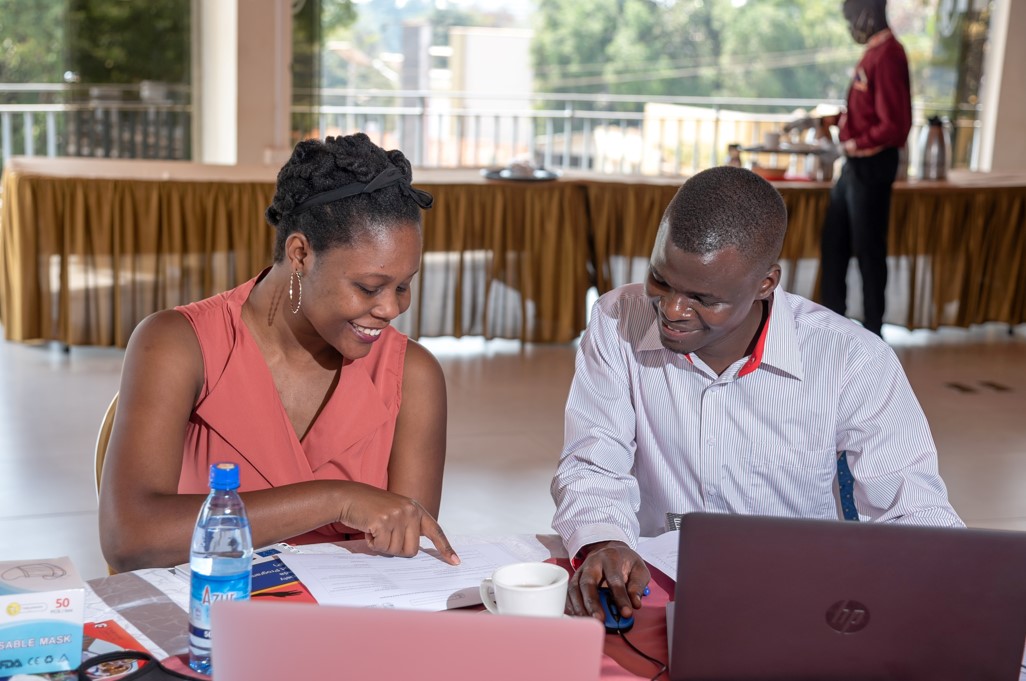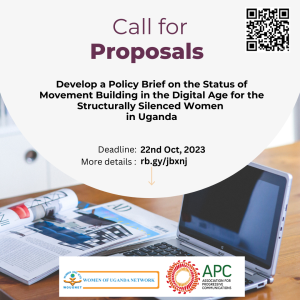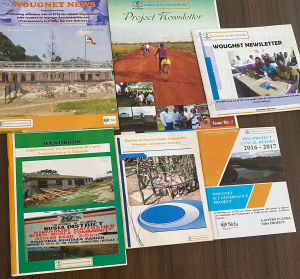The 2030 Agenda for Sustainable Development adopted by all United Nations member states in 2015 has 17 Sustainable Development Goals (SDGs), with Goal 5 being gender equality. Africa and the rest of the world are targeting to achieve gender equality and empower all women and girls by 2030. According to the Office of the Special Advisor on Gender Issues and Advancement of Women (2001:1), gender equality refers to the equal rights, responsibilities and opportunities of women and men and girls and boys. The United Nations Development Group ([UNDG] 2017:2) mentions that the data revolution has been recognized as an enabler of the 2030 Agenda, not only to monitor progress but also to engage inclusively with stakeholders at all levels to advance evidence-based policies and programmes to reach the most vulnerable.
Reports such as that by Ahmed (2020:1) have indicated that big data can be leveraged to achieve gender equality globally. Big data analytics can facilitate real-time situational awareness, improve information on the lives of women and girls, identify trends and correlations within and across large datasets that would otherwise be unknown, provide new information on mobility, social interactions, opportunities for participatory monitoring, real-time feedback, and learning loops, along with improvements in accountability and transparency. Therefore, this paper explores Africa’s chance to achieve gender equality using big data. I analyse the different debates advancing gender equality through the use of big data, I also explore the realities in the sub-Saharan African region in reference to the digital gender divide, poor technological infrastructure, data infrastructure, data protection regulations, content regulation and internet shutdowns. The paper will draw examples largely from Uganda and East Africa.
What are the existing debates?
According to Ahmed (2020), data plays a fundamental role in achieving gender equality and empowering women and girls across the globe by identifying multisectoral gaps in the provision of equal opportunities and the protection of female rights, and by aiding in the implementation of evidence-based policies and interventions. Ahmed (2020) also argues that big data has evolved as a parallel source for understanding gender perceptions and forms of discrimination and marginalisation due to its ability to detect large-scale data patterns and generate predictive models. UN Women (2018) also recognises the potential of integrating big data and analytics into programmes and policies and aims to identify applications of big data that could lead to effective solutions in its areas of work.
Ahmed (2020) argues that inclusive approaches to data collection on gender and its usage have been shown to yield greater revenues, as well as numerous other nonfinancial positive outcomes such as employee retention and operational replicability and scalability. The data revolution currently underway can be leveraged, and in certain places already is being leveraged, to achieve sustainable development.
Initiatives promoting the use of gendered data to empower women and girls are being implemented in Africa. The UN Women’s global gender statistics project, Making Every Woman and Girl Count, is being implemented in many African countries, including Uganda, Kenya, Rwanda and Tanzania. According to UN Women Africa (2020), this project has conducted national assessments of gender statistics systems and supported the strengthening of capacities to produce and disseminate new gender data in the different African countries. The assessments have highlighted concrete recommendations for advancing gender equality and influencing current policies and programmes using gendered statistics.
What are the realities in Sub-Saharan Africa?
Advancing gender equality using big data in Sub-Saharan African (SSA) is hindered by various issues, such as cultural beliefs, a lack of relevant policies that promote access to and usage of big data, a lack of infrastructure, and not prioritising gender equality. For countries to tackle gender inequalities, significant issues such as access to education, finance, health care and relevant information by women and girls should be addressed. This must lead to enacting relevant laws, policies, practices and strategic approaches by governments, the private and public sector and all key stakeholders. The United Nations Department of Economic and Social Affairs (2016) asserts that the importance of having gender statistics cannot be overlooked, because statistics incorporate disaggregated data that reflect gender issues and inequalities, data that highlights the realities and diversity of the lives of women and men, and data collected using methods and concepts that account for the gender biases present in traditional classification and collection methods.
According to the GSMA (2021), 75% of women in Sub-Saharan Africa own mobile phones, but the gender gap for mobile phone ownership is 13% and 74 million women are still unconnected. The report also reveals that 39% of women use mobile internet, which indicates a 37% gender gap in mobile internet usage. About 182 million women do not use mobile internet. The report further indicates that the gender gap in mobile ownership is higher in rural areas, and among the illiterate community, persons with disabilities and the unemployed. This connotes that big data is less generated from the unconnected, and yet it is crucial for data to be captured inclusively to order to inform policies and programs that advance gender equality. Surya Kannoth (n.d.) argues that big data sources in Sub-Saharan African are largely mobile phones, therefore telecommunications companies remain the biggest holders of big data in Africa. The top telecommunications companies in Africa are the MTN Group, the Vodacom Group, Safaricom, Airtel Africa and Orange Africa, among others, but access to the data they hold still remains restricted.
According to Data2X (2019:2), increasing financial inclusion among women depends on a better understanding of gendered phone and mobile money usage. This analysis suggests that improving access to digital technologies will not, in itself, fully leverage the power of these technologies to equalise social opportunity. However, policymakers, private companies and key stakeholders need to consider barriers such as cultural and traditional beliefs and practices that constrain the size and structure of women’s social networks, limit their mobility, and determine the differentials in their use of voice, text and data services. Data2X (2019:2) states that young women, especially those living in urban areas, use mobile phone services almost as much as men, and this represents an important opportunity for network operators, governments and other actors to collaborate for social gender equality
According to Open Data Watch (2019), Uganda still lacks data on key aspects of women’s lives. Uganda’s national databases include 59 out of the 104 gender indicators, and 10 gender indicators lack sex disaggregation in Uganda’s national databases. Of the published gender indicators in Uganda’s national databases, 17 do not conform to internationally recommended definitions, and 32 gender indicators in Uganda’s national databases have no published observations since 2015. Therefore, in the absence of adequate sex-disaggregated data, gender equality strategies cannot be well informed to tackle the existing inequalities.
Data protection and privacy regulation is a crucial component of big data, and yet there are countries such as South Sudan, Burundi and Tanzania that do not have data protection laws. Daigle (2021) emphasised that, in the absence of data protection laws, there is a danger that big data may be exploited instead of being leveraged to achieve gender equality. Additionally, there is need to create public awareness to change the practices and also ensure the proper implementation of these laws. According to Daigle (2021), the majority of West African countries have adopted data protection regulations, while many countries in Central and East Africa have not adopted any major data protection regulations, apart from Kenya, Uganda and Rwanda. In Southern Africa there is an uneven patchwork of regulations. Several countries (South Africa, Botswana, Madagascar) have adopted data protection laws that are not currently in force, and no major countries in Southern Africa have adopted a data protection law after the General Data Protection Regulations (GDPR).
Despite Uganda’s progress in enacting a data protection and privacy law in 2019, it is yet to ratify the African Union’s (2014) Convention on Cyber Security and Personal Data Protection. Data collection, processing and storage are undertaken with minimal public awareness of the legal frameworks and ideal practices that needs to be embraced. According to Kamurungi (2021), Uganda is currently in the process of installing digital vehicle tracker on all vehicles and motorcycles in the country. This initiative has been undertaken to tackle the rising number of cases of insecurity. The digital vehicle tracker would generate data that reveals access to, and usage and ownership of vehicles by women and men. This data is crucial for both the government and private sectors in Uganda to achieve gender equality. However, Kamurungi (2021) says that this initiative has received mixed reactions and criticism for fear of increased government surveillance of citizens, especially opposition politicians. Other critics have argued that this data could be used by criminals to track individuals, which jeopardises personal security.
Gender equality is affected negatively by the increased internet shutdowns in SSA, as shutdowns restrict women and men from accessing information, services such as finance, health and education, and also limit content creation. Shutdowns infringe on digital human rights such as access to information, freedom of expression and freedom of association, which must be upheld for gender equality to be realised. Data (2021) argues that the internet has been disrupted in countries such as Ethiopia, Cameroon, Uganda, DRC, Chad, Sudan, Tanzania, Mali and Burundi once or multiple times. Uganda has had three internet disruptions during general elections. According to the BBC (2021), the recent internet disruptions in Uganda happened on 11 January 2021, with access to Facebook blocked. After two days, and on the eve of the presidential and parliamentary elections, the Uganda Communications Commission (UCC) ordered all telecommunication companies to shut down internet access for all users until further notice. The total shutdown lasted for five days, after which access to the internet was restored except for social media platforms. Bwire (2021), writing in the Daily Monitor, confirmed that access to Facebook was still restricted in February.
There have been increased content regulations in the region. Wanyama (2020) reveals that Uganda’s communications regulator, UCC, issued a notice in 2018 to require providers of online data communication and broadcast service providers to obtain authorisation for the provision of services to the public. In September 2020, the Uganda Communications Commission ([UCC] 2020) issued a renewed order for online publishers and broadcasters to apply for licences before they operate. The regulator has on many occasions threatened to close media houses on allegations of inappropriate content and not possessing authorisation. According to The Independent (2019), UCC threatened to shut down the website of the Daily Monitor, one of the leading independent newspapers in Uganda. These restrictions affect women and men disproportionally and influence content creation and the generation of big data that informs policies and approaches undertaken to tackle gender inequality in the country.
Recommendations
To achieve gender equality, there is an urgent need to enact gender-responsive laws and policies and also gender-responsive approaches in all programmes of government, and the private and public sectors.
The proper implementation of the existing laws and policies in the region should be monitored. SSA countries largely have good laws and policies; however, there have been gaps in the implementation.
The fight to tackle gender inequalities cannot be left for governments, but rather collective action must be taken by all stakeholder, such as civil society organisations, the media, academics, legislators, multinational companies, women and men.
Conclusion
Conceivably, traditional data collection methods such as interviews and focus group discussions can still be used in Sub-Saharan Africa to achieve engendered data that will inform approaches and policies to enhance gender equality in the region. These methods of data collection would also help clarify the cultural and economic factors that determine the behaviour and use of technology of women and men. Most African societies are patriarchal, with the male being dominant. This is replicated in the online space and influences data generation. For Africans to achieve digital sovereignty, interventions to control and govern its own data is a key strategy to be undertaken, rather than have its data managed by foreign entities.
If we have societies in which women and girls are empowered, it will unleash the full potential of women’s efforts toward achieving Goal 5 of the UN Sustainable Development Goals.
References
African Union. (2014). Convention on cyber security and personal data protection. Available from: https://au.int/en/treaties/african-union-convention-cyber-security-and-personal-data-protection
Ahmed, N. R. (2020). Leveraging big data to advance gender equality. Washington, DC: International Finance Corporation. Retrieved from: https://www.ifc.org/wps/wcm/connect/24721437-3f10-4e7b-9177-eb067d188d4c/EMCompass-Note-86-Big-Data-and-Gender-v2.pdf?MOD=AJPERES&CVID=nbNtqBX
BBC. (2021, January 18). Uganda election: Internet restored but social media blocked. Available from: https://www.bbc.com/news/world-africa-55705404
Bwire, J. (2021). Government lifts internet shutdown imposed over election. Daily Monitor. Available from: https://www.monitor.co.ug/uganda/news/national/govt-lifts-internet-shutdown-imposed-over-election-3286184
Dada, B. (2021). The protracted history of internet shutdowns in Africa. Available from: https://www.benjamindada.com/history-of-internet-shutdowns-in-africa
Daigle, B. (2021). Data protection laws in Africa: A Pan-African survey and noted trends. Journal of International Commerce and Economics, February. Available from: https://www.usitc.gov/publications/332/journals/jice_africa_data_protection_laws.pdf
Data2X. (2019). Mobile money & gender in Uganda. Available from: https://data2x.org/wp-content/uploads/2019/10/MobileMoneyGenderinUganda_Dalberg.pdf
GSMA. (2021). Connected women: The mobile gender gap report 2021. Available from:
https://www.gsma.com/r/wp-content/uploads/2021/07/The-Mobile-Gender-Gap-Report-2021.pdf
Kamurungi, E. (2021, July 26). Car trackers: Government assures on privacy. Daily Monitor. Available from: https://www.monitor.co.ug/uganda/news/national/car-trackers-govt-assures-on-privacy–3487014
Kannoth, S. (n.d.) Big data presents big opportunities for Africa. Logistics Update Africa.
https://www.logupdateafrica.com/big-data-presents-big-opportunities-for-africa
Office of the Special Advisor on Gender Issues and Advancement of Women. (2001). Gender mainstreaming: Strategy for promoting gender equality. Available from:
https://www.un.org/womenwatch/osagi/pdf/factsheet1.pdf
Open Data Watch. (2019). Bridging the gap: Mapping gender data availability in Africa. Technical Report. Available from: https://data2x.org/wp-content/uploads/2019/06/Bridging-the-Gap-Technical-Report-Web-Ready.pdf
The Independent. (2019, February 6). UCC orders Daily Monitor to shut website. Available from: https://www.independent.co.ug/ucc-orders-daily-monitor-to-shut-their-website/
Uganda Communications Commission. (2020, September 8). Reminders to providers of online data communication and broadcasting services to obtain authorisation. Available from: https://www.ucc.co.ug/reminder-to-providers-of-online-data-communication-and-broadcasting-services-to-obtain-authorisati on/
United Nations Department of Economic and Social Affairs. (2016). Integrating a gender perspective into statistics. New York: United Nations
United Nations Development Group (UNDG). (2017). UNDG guidance note on big data for achievement of the 2030 Agenda: Data privacy, ethics and protection. Available from: https://web.archive.org/web/20171107170050/https://undg.org/wp-content/uploads/2017/03/UNDG-Big-Data-Guidance-Note.pdf
UN Women. (2018). Gender equality and big data. Available from: https://www.unwomen.org/-/media/headquarters/attachments/sections/library/publications/2018/gender-equality-and-big-data-en.pdf?la=en&vs=3955
UN Women Africa. (2020). Gender statistics: Making every girl and woman count. Available from:
https://africa.unwomen.org/en/where-we-are/eastern-and-southern-africa/tanzania/gender-statistics
Wanyama, E. (2020) Registration of online publishers and broadcasters threatens free expression in Uganda. CIPESA. Available from: https://cipesa.org/2020/09/registration-of-online-publishers-and-broadcasters-threatens-free-expression-in-uganda/
By: Peace Oliver Amuge – Executive Director05/05/2022 08:45
Advancing Gender Equality through Big Data in Sub-Saharan Africa
The 2030 Agenda for Sustainable Development adopted by all United Nations member states in 2015 has 17 Sustainable Development Goals (SDGs), with Goal 5 being gender equality. Africa and the rest of the world are targeting to achieve gender equality and empower all women and girls by 2030. According to the Office of the Special Advisor on Gender Issues and Advancement of Women (2001:1), gender equality refers to the equal rights, responsibilities and opportunities of women and men and girls and boys. The United Nations Development Group ([UNDG] 2017:2) mentions that the data revolution has been recognized as an enabler of the 2030 Agenda, not only to monitor progress but also to engage inclusively with stakeholders at all levels to advance evidence-based policies and programmes to reach the most vulnerable.
Reports such as that by Ahmed (2020:1) have indicated that big data can be leveraged to achieve gender equality globally. Big data analytics can facilitate real-time situational awareness, improve information on the lives of women and girls, identify trends and correlations within and across large datasets that would otherwise be unknown, provide new information on mobility, social interactions, opportunities for participatory monitoring, real-time feedback, and learning loops, along with improvements in accountability and transparency. Therefore, this paper explores Africa’s chance to achieve gender equality using big data. I analyse the different debates advancing gender equality through the use of big data, I also explore the realities in the sub-Saharan African region in reference to the digital gender divide, poor technological infrastructure, data infrastructure, data protection regulations, content regulation and internet shutdowns. The paper will draw examples largely from Uganda and East Africa.
What are the existing debates?
According to Ahmed (2020), data plays a fundamental role in achieving gender equality and empowering women and girls across the globe by identifying multisectoral gaps in the provision of equal opportunities and the protection of female rights, and by aiding in the implementation of evidence-based policies and interventions. Ahmed (2020) also argues that big data has evolved as a parallel source for understanding gender perceptions and forms of discrimination and marginalisation due to its ability to detect large-scale data patterns and generate predictive models. UN Women (2018) also recognises the potential of integrating big data and analytics into programmes and policies and aims to identify applications of big data that could lead to effective solutions in its areas of work.
Ahmed (2020) argues that inclusive approaches to data collection on gender and its usage have been shown to yield greater revenues, as well as numerous other nonfinancial positive outcomes such as employee retention and operational replicability and scalability. The data revolution currently underway can be leveraged, and in certain places already is being leveraged, to achieve sustainable development.
Initiatives promoting the use of gendered data to empower women and girls are being implemented in Africa. The UN Women’s global gender statistics project, Making Every Woman and Girl Count, is being implemented in many African countries, including Uganda, Kenya, Rwanda and Tanzania. According to UN Women Africa (2020), this project has conducted national assessments of gender statistics systems and supported the strengthening of capacities to produce and disseminate new gender data in the different African countries. The assessments have highlighted concrete recommendations for advancing gender equality and influencing current policies and programmes using gendered statistics.
What are the realities in Sub-Saharan Africa?
Advancing gender equality using big data in Sub-Saharan African (SSA) is hindered by various issues, such as cultural belief, a lack of relevant policies that promote access to and usage of big data, a lack of infrastructure, and not prioritising gender equality. For countries to tackle gender inequalities, significant issues such as access to education, finance, health care and relevant information by women and girls should be addressed. This must lead to enacting relevant laws, policies, practices and strategic approaches by governments, the private and public sector and all key stakeholders. The United Nations Department of Economic and Social Affairs (2016) asserts that the importance of having gender statistics cannot be overlooked, because statistics incorporate disaggregated data that reflect gender issues and inequalities, data that highlights the realities and diversity of the lives of women and men, and data collected using methods and concepts that account for the gender biases present in traditional classification and collection methods.
According to the GSMA (2021), 75% of women in Sub-Saharan Africa own mobile phones, but the gender gap for mobile phone ownership is 13% and 74 million women are still unconnected. The report also reveals that 39% of women use mobile internet, which indicates a 37% gender gap in mobile internet usage. About 182 million women do not use mobile internet. The report further indicates that the gender gap in mobile ownership is higher in rural areas, and among the illiterate community, persons with disabilities and the unemployed. This connotes that big data is less generated from the unconnected, and yet it is crucial for data to be captured inclusively to order to inform policies and programs that advance gender equality. Surya Kannoth (n.d.) argues that big data sources in Sub-Saharan African are largely mobile phones, therefore telecommunications companies remain the biggest holders of big data in Africa. The top telecommunications companies in Africa are the MTN Group, the Vodacom Group, Safaricom, Airtel Africa and Orange Africa, among others, but access to the data they hold still remains restricted.
According to Data2X (2019:2), increasing financial inclusion among women depends on a better understanding of gendered phone and mobile money usage. This analysis suggests that improving access to digital technologies will not, in itself, fully leverage the power of these technologies to equalise social opportunity. However, policymakers, private companies and key stakeholders need to consider barriers such as cultural and traditional beliefs and practices that constrain the size and structure of women’s social networks, limit their mobility, and determine the differentials in their use of voice, text and data services. Data2X (2019:2) states that young women, especially those living in urban areas, use mobile phone services almost as much as men, and this represents an important opportunity for network operators, governments and other actors to collaborate for social gender equality
According to Open Data Watch (2019), Uganda still lacks data on key aspects of women’s lives. Uganda’s national databases include 59 out of the 104 gender indicators, and 10 gender indicators lack sex disaggregation in Uganda’s national databases. Of the published gender indicators in Uganda’s national databases, 17 do not conform to internationally recommended definitions, and 32 gender indicators in Uganda’s national databases have no published observations since 2015. Therefore, in the absence of adequate sex-disaggregated data, gender equality strategies cannot be well informed to tackle the existing inequalities.
Data protection and privacy regulation is a crucial component of big data, and yet there are countries such as South Sudan, Burundi and Tanzania that do not have data protection laws. Daigle (2021) emphasised that, in the absence of data protection laws, there is a danger that big data may be exploited instead of being leveraged to achieve gender equality. Additionally, there is need to create public awareness to change the practices and also ensure the proper implementation of these laws. According to Daigle (2021), the majority of West African countries have adopted data protection regulations, while many countries in Central and East Africa have not adopted any major data protection regulations, apart from Kenya, Uganda and Rwanda. In Southern Africa there is an uneven patchwork of regulations. Several countries (South Africa, Botswana, Madagascar) have adopted data protection laws that are not currently in force, and no major countries in Southern Africa have adopted a data protection law after the General Data Protection Regulations (GDPR).
Despite Uganda’s progress in enacting a data protection and privacy law in 2019, it is yet to ratify the African Union’s (2014) Convention on Cyber Security and Personal Data Protection. Data collection, processing and storage are undertaken with minimal public awareness of the legal frameworks and ideal practices that needs to be embraced. According to Kamurungi (2021), Uganda is currently in the process of installing digital vehicle tracker on all vehicles and motorcycles in the country. This initiative has been undertaken to tackle the rising number of cases of insecurity. The digital vehicle tracker would generate data that reveals access to, and usage and ownership of vehicles by women and men. This data is crucial for both the government and private sectors in Uganda to achieve gender equality. However, Kamurungi (2021) says that this initiative has received mixed reactions and criticism for fear of increased government surveillance of citizens, especially opposition politicians. Other critics have argued that this data could be used by criminals to track individuals, which jeopardises personal security.
Gender equality is affected negatively by the increased internet shutdowns in SSA, as shutdowns restrict women and men from accessing information, services such as finance, health and education, and also limit content creation. Shutdowns infringe on digital human rights such as access to information, freedom of expression and freedom of association, which must be upheld for gender equality to be realised. Data (2021) argues that the internet has been disrupted in countries such as Ethiopia, Cameroon, Uganda, DRC, Chad, Sudan, Tanzania, Mali and Burundi once or multiple times. Uganda has had three internet disruptions during general elections. According to the BBC (2021), the recent internet disruptions in Uganda happened on 11 January 2021, with access to Facebook blocked. After two days, and on the eve of the presidential and parliamentary elections, the Uganda Communications Commission (UCC) ordered all telecommunication companies to shut down internet access for all users until further notice. The total shutdown lasted for five days, after which access to the internet was restored except for social media platforms. Bwire (2021), writing in the Daily Monitor, confirmed that access to Facebook was still restricted in February.
There have been increased content regulations in the region. Wanyama (2020) reveals that Uganda’s communications regulator, UCC, issued a notice in 2018 to require providers of online data communication and broadcast service providers to obtain authorisation for the provision of services to the public. In September 2020, the Uganda Communications Commission ([UCC] 2020) issued a renewed order for online publishers and broadcasters to apply for licences before they operate. The regulator has on many occasions threatened to close media houses on allegations of inappropriate content and not possessing authorisation. According to The Independent (2019), UCC threatened to shut down the website of the Daily Monitor, one of the leading independent newspapers in Uganda. These restrictions affect women and men disproportionally and influence content creation and the generation of big data that informs policies and approaches undertaken to tackle gender inequality in the country.
Recommendations
To achieve gender equality, there is an urgent need to enact gender-responsive laws and policies and also gender-responsive approaches in all programmes of government, and the private and public sectors.
The proper implementation of the existing laws and policies in the region should be monitored. SSA countries largely have good laws and policies; however, there have been gaps in the implementation.
The fight to tackle gender inequalities cannot be left for governments, but rather collective action must be taken by all stakeholder, such as civil society organisations, the media, academics, legislators, multinational companies, women and men.
Conclusion
Conceivably, traditional data collection methods such as interviews and focus group discussions can still be used in Sub-Saharan Africa to achieve engendered data that will inform approaches and policies to enhance gender equality in the region. These methods of data collection would also help clarify the cultural and economic factors that determine the behaviour and use of technology of women and men. Most African societies are patriarchal, with the male being dominant. This is replicated in the online space and influences data generation. For Africans to achieve digital sovereignty, interventions to control and govern its own data is a key strategy to be undertaken, rather than have its data managed by foreign entities.
If we have societies in which women and girls are empowered, it will unleash the full potential of women’s efforts toward achieving Goal 5 of the UN Sustainable Development Goals.
References
African Union. (2014). Convention on cyber security and personal data protection. Available from: https://au.int/en/treaties/african-union-convention-cyber-security-and-personal-data-protection
Ahmed, N. R. (2020). Leveraging big data to advance gender equality. Washington, DC: International Finance Corporation. Retrieved from: https://www.ifc.org/wps/wcm/connect/24721437-3f10-4e7b-9177-eb067d188d4c/EMCompass-Note-86-Big-Data-and-Gender-v2.pdf?MOD=AJPERES&CVID=nbNtqBX
BBC. (2021, January 18). Uganda election: Internet restored but social media blocked. Available from: https://www.bbc.com/news/world-africa-55705404
Bwire, J. (2021). Government lifts internet shutdown imposed over election. Daily Monitor. Available from: https://www.monitor.co.ug/uganda/news/national/govt-lifts-internet-shutdown-imposed-over-election-3286184
Dada, B. (2021). The protracted history of internet shutdowns in Africa. Available from: https://www.benjamindada.com/history-of-internet-shutdowns-in-africa
Daigle, B. (2021). Data protection laws in Africa: A Pan-African survey and noted trends. Journal of International Commerce and Economics, February. Available from: https://www.usitc.gov/publications/332/journals/jice_africa_data_protection_laws.pdf
Data2X. (2019). Mobile money & gender in Uganda. Available from: https://data2x.org/wp-content/uploads/2019/10/MobileMoneyGenderinUganda_Dalberg.pdf
GSMA. (2021). Connected women: The mobile gender gap report 2021. Available from:
https://www.gsma.com/r/wp-content/uploads/2021/07/The-Mobile-Gender-Gap-Report-2021.pdf
Kamurungi, E. (2021, July 26). Car trackers: Government assures on privacy. Daily Monitor. Available from: https://www.monitor.co.ug/uganda/news/national/car-trackers-govt-assures-on-privacy–3487014
Kannoth, S. (n.d.) Big data presents big opportunities for Africa. Logistics Update Africa.
https://www.logupdateafrica.com/big-data-presents-big-opportunities-for-africa
Office of the Special Advisor on Gender Issues and Advancement of Women. (2001). Gender mainstreaming: Strategy for promoting gender equality. Available from:
https://www.un.org/womenwatch/osagi/pdf/factsheet1.pdf
Open Data Watch. (2019). Bridging the gap: Mapping gender data availability in Africa. Technical Report. Available from: https://data2x.org/wp-content/uploads/2019/06/Bridging-the-Gap-Technical-Report-Web-Ready.pdf
The Independent. (2019, February 6). UCC orders Daily Monitor to shut website. Available from: https://www.independent.co.ug/ucc-orders-daily-monitor-to-shut-their-website/
Uganda Communications Commission. (2020, September 8). Reminders to providers of online data communication and broadcasting services to obtain authorisation. Available from: https://www.ucc.co.ug/reminder-to-providers-of-online-data-communication-and-broadcasting-services-to-obtain-authorisati on/
United Nations Department of Economic and Social Affairs. (2016). Integrating a gender perspective into statistics. New York: United Nations
United Nations Development Group (UNDG). (2017). UNDG guidance note on big data for achievement of the 2030 Agenda: Data privacy, ethics and protection. Available from: https://web.archive.org/web/20171107170050/https://undg.org/wp-content/uploads/2017/03/UNDG-Big-Data-Guidance-Note.pdf
UN Women. (2018). Gender equality and big data. Available from: https://www.unwomen.org/-/media/headquarters/attachments/sections/library/publications/2018/gender-equality-and-big-data-en.pdf?la=en&vs=3955
UN Women Africa. (2020). Gender statistics: Making every girl and woman count. Available from:
https://africa.unwomen.org/en/where-we-are/eastern-and-southern-africa/tanzania/gender-statistics
Wanyama, E. (2020) Registration of online publishers and broadcasters threatens free expression in Uganda. CIPESA. Available from: https://cipesa.org/2020/09/registration-of-online-publishers-and-broadcasters-threatens-free-expression-in-uganda/
By: Peace Oliver Amuge – Executive Director






